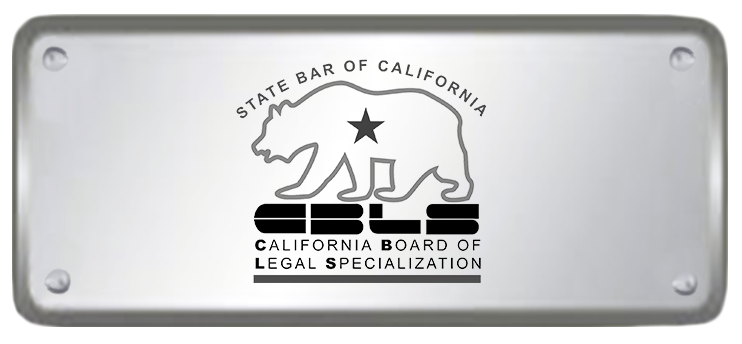DISSOLUTION OF A REGISTERED DOMESTIC PARTNERSHIP IN CALIFORNIA
Dissolution of a Registered Domestic Partnership (RDP) in California refers to the legal process of formally ending an RDP, which is a legally recognized relationship between two individuals who choose not to marry but seek to have their partnership legally recognized. In California, RDPs offer couples many of the same legal rights and responsibilities as married couples. When the RDP comes to an end, the dissolution process allows the partners to legally terminate their domestic partnership and address issues such as property division, support, and child custody.
Understanding Registered Domestic Partnership Dissolution
WHY RDP?
Choosing to enter an RDP rather than a marriage is a highly subjective decision. Sometimes an RDP is entered simply to attain many of the financial benefits of marriage without marriage. In the past, many same-sex couples entered RDPs when the option to legally marry was unavailable to them.
LEGAL GROUNDS FOR DISSOLUTION
To dissolve a domestic partnership in California, the parties must establish a legal basis that is similar to a no-fault divorce, such as irreconcilable differences. RDPs may also be nullified if sufficient legal grounds exist.
RESIDENCY REQUIREMENTS
At least one of the RDPs must meet the residency requirements to dissolve their RDP in California. The petitioner or the respondent should have resided in the state for a minimum of six months before filing.
PROPERTY DIVISION
California follows community property laws, which generally means that assets and debts acquired during the domestic partnership are presumed to be community property, subject to equal division between the partners. However, RDPs can agree to a different distribution.
SPOUSAL SUPPORT
One partner may be entitled to spousal support from the other partner, just as in a divorce. Factors such as the duration of the RDP, the standard of living established during the RDP, and each partner’s financial needs and income will be considered when determining a request for spousal support.
CHILD CUSTODY AND SUPPORT
If the RDP involves children, child custody and support arrangements must be established. In California, child custody decisions are generally based on the child’s best interests, and both parents are typically entitled to share legal and physical custody. Child support is determined using state guidelines that consider various factors, including each parent’s income and the child’s needs.
Our experienced family law attorneys at Antonyan Miranda can help you navigate through the dissolution of your RDP. Call us at 619-696-1100 to speak with one of our Concierge attorneys, or visit us at www.expertdivorcelaw.com for more information.
FOLLOW US!
DISSOLUTION OF A REGISTERED DOMESTIC PARTNERSHIP IN CALIFORNIA
Dissolution of a Registered Domestic Partnership (RDP) in California refers to the legal process of formally ending an RDP, which is a legally recognized relationship between two individuals who choose not to marry but seek to have their partnership legally recognized. In California, RDPs offer couples many of the same legal rights and responsibilities as married couples. When the RDP comes to an end, the dissolution process allows the partners to legally terminate their domestic partnership and address issues such as property division, support, and child custody.
Understanding Registered Domestic Partnership Dissolution
WHY RDP?
Choosing to enter an RDP rather than a marriage is a highly subjective decision. Sometimes an RDP is entered simply to attain many of the financial benefits of marriage without marriage. In the past, many same-sex couples entered RDPs when the option to legally marry was unavailable to them.
LEGAL GROUNDS FOR DISSOLUTION
To dissolve a domestic partnership in California, the parties must establish a legal basis that is similar to a no-fault divorce, such as irreconcilable differences. RDPs may also be nullified if sufficient legal grounds exist.
RESIDENCY REQUIREMENTS
At least one of the RDPs must meet the residency requirements to dissolve their RDP in California. The petitioner or the respondent should have resided in the state for a minimum of six months before filing.
PROPERTY DIVISION
California follows community property laws, which generally means that assets and debts acquired during the domestic partnership are presumed to be community property, subject to equal division between the partners. However, RDPs can agree to a different distribution.
SPOUSAL SUPPORT
One partner may be entitled to spousal support from the other partner, just as in a divorce. Factors such as the duration of the RDP, the standard of living established during the RDP, and each partner’s financial needs and income will be considered when determining a request for spousal support.
CHILD CUSTODY AND SUPPORT
If the RDP involves children, child custody and support arrangements must be established. In California, child custody decisions are generally based on the child’s best interests, and both parents are typically entitled to share legal and physical custody. Child support is determined using state guidelines that consider various factors, including each parent’s income and the child’s needs.
Our experienced family law attorneys at Antonyan Miranda can help you navigate through the dissolution of your RDP. Call us at 619-696-1100 to speak with one of our Concierge attorneys, or visit us at www.expertdivorcelaw.com for more information.





















